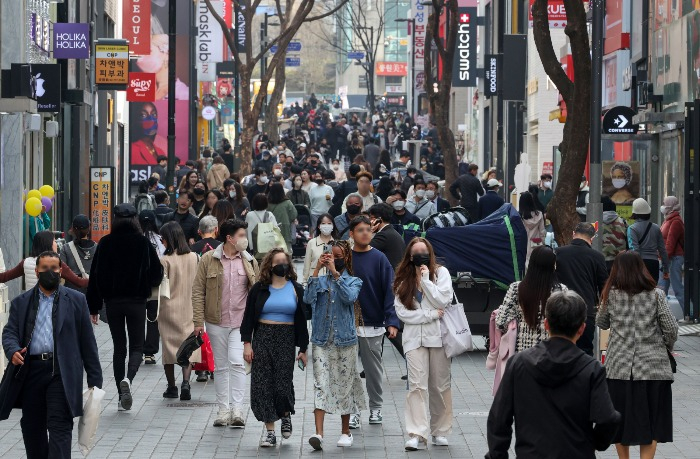Travel & Leisure
Tourist arrival gap between S.Korea, Japan widens sharply
The stronger won and high inflation in South Korea has put Japanese travelers off, despite the lifting of the visa ban
By Mar 10, 2023 (Gmt+09:00)
1
Min read
Most Read
LG Chem to sell water filter business to Glenwood PE for $692 million


KT&G eyes overseas M&A after rejecting activist fund's offer


Kyobo Life poised to buy Japan’s SBI Group-owned savings bank


StockX in merger talks with Naver’s online reseller Kream


Meritz backs half of ex-manager’s $210 mn hedge fund



Since Japan resumed visa-free travel for South Koreans in October last year, South Koreans have been flocking to the neighboring country.
But the number of Japanese tourists to South Korea has dropped sharply, even after Seoul lifted visa restrictions on the Japanese the following month.
The shrinking number of Japanese visitors has further widened the gap between the number of visitors to each country.
The two countries are the most popular destinations for each other.
According to the Korean Tourism Organization and Japan’s tourism authority on Friday, the number of Japanese people who traveled to South Korea in January was down 19.4% to 434,429, compared to December 2022's figure.
By contrast, a growing number of South Koreans visited Japan, some 565,200 in January.
The sharp decrease in Japanese tourist numbers is attributed in large part to the overall decline in the number of foreign visitors to South Korea.
The stronger won and high inflation in South Korea are blamed for the rapid drop in Japanese tourist numbers.
The won firmed to the low end of the 970 won range against the Japanese yen this month, versus the 1,191 level in February 2020.
Now McDonald’s signature Big Mac sells for 5,200 won in South Korea, while it costs 4,384 won in Japan based on the current exchange rate.
Thanks to Japan's steady efforts to boost its tourism infrastructure during the pandemic, it ranked first among 117 countries in the Travel & Tourism Development Index 2021 released by the World Economic Forum.
Write to Mee-Kyung Lee, Si-On Park and Yu-Rim Oh at capital@hankyung.com
Yeonhee Kim edited this article
More to Read
-

-

-
 Travel & LeisureKorean hotels bask in rising foreign visitors; travel agencies in trouble
Travel & LeisureKorean hotels bask in rising foreign visitors; travel agencies in troubleApr 22, 2025 (Gmt+09:00)
-
 Beauty & CosmeticsPackaging rides K-beauty wave: Shares of cosmetics container makers soar
Beauty & CosmeticsPackaging rides K-beauty wave: Shares of cosmetics container makers soarApr 21, 2025 (Gmt+09:00)
-
 Food & BeverageIndia: Tantalizing frontier for K-food’s global ambitions beyond China
Food & BeverageIndia: Tantalizing frontier for K-food’s global ambitions beyond ChinaApr 18, 2025 (Gmt+09:00)
Comment 0
LOG IN


